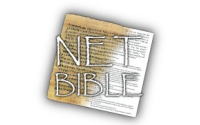July 17 – Ezra 3 and 4 from the Old Testament
Ezra 3 and 4 – The Altar is Rebuilt
3:1 When the seventh month arrived and the Israelites were living in their towns, the people assembled in Jerusalem. 3:2 Then Jeshua the son of Jozadak and his priestly colleagues and Zerubbabel son of Shealtiel and his colleagues started to build the altar of the God of Israel so they could offer burnt offerings on it as required by the law of Moses the man of God. 3:3 They established the altar on its foundations, even though they were in terror of the local peoples, and they offered burnt offerings on it to the Lord, both the morning and the evening offerings. 3:4 They observed the Festival of Temporary Shelters as required and offered the proper number of daily burnt offerings according to the requirement for each day. 3:5 Afterward they offered the continual burnt offerings and those for the new moons and those for all the holy assemblies of the Lord and all those that were being voluntarily offered to the Lord. 3:6 From the first day of the seventh month they began to offer burnt offerings to the Lord. However, the Lord’s temple was not at that time established.
Preparations for Rebuilding the Temple
3:7 So they provided money for the masons and carpenters, and food, beverages, and olive oil for the people of Sidon and Tyre, so that they would bring cedar timber from Lebanon to the seaport at Joppa, in accord with the edict of King Cyrus of Persia. 3:8 In the second year after they had come to the temple of God in Jerusalem, in the second month, Zerubbabel the son of Shealtiel and Jeshua the son of Jozadak initiated the work, along with the rest of their associates, the priests and the Levites, and all those who were coming to Jerusalem from the exile. They appointed the Levites who were at least twenty years old to take charge of the work on the Lord’s temple. 3:9 So Jeshua appointed both his sons and his relatives, Kadmiel and his sons (the sons of Yehudah), to take charge of the workers in the temple of God, along with the sons of Henadad, their sons, and their relatives the Levites. 3:10 When the builders established the Lord’s temple, the priests, ceremonially attired and with their clarions, and the Levites (the sons of Asaph) with their cymbals, stood to praise the Lord according to the instructions left by King David of Israel. 3:11 With antiphonal response they sang, praising and glorifying the Lord:
“For he is good;
his loyal love toward Israel is forever.”
All the people gave a loud shout as they praised the Lord when the temple of the Lord was established. 3:12 Many of the priests, the Levites, and the leaders – older people who had seen with their own eyes the former temple while it was still established – were weeping loudly, and many others raised their voice in a joyous shout. 3:13 People were unable to tell the difference between the sound of joyous shouting and the sound of the people’s weeping, for the people were shouting so loudly that the sound was heard a long way off.
Opposition to the Building Efforts
4:1 When the enemies of Judah and Benjamin learned that the former exiles were building a temple for the Lord God of Israel, 4:2 they came to Zerubbabel and the leaders and said to them, “Let us help you build, for like you we seek your God and we have been sacrificing to him from the time of King Esarhaddon of Assyria, who brought us here.” 4:3 But Zerubbabel, Jeshua, and the rest of the leaders of Israel said to them, “You have no right to help us build the temple of our God. We will build it by ourselves for the Lord God of Israel, just as King Cyrus, the king of Persia, has commanded us.” 4:4 Then the local people began to discourage the people of Judah and to dishearten them from building. 4:5 They were hiring advisers to oppose them, so as to frustrate their plans, throughout the time of King Cyrus of Persia until the reign of King Darius of Persia.
Official Complaints Are Lodged Against the Jews
4:6 At the beginning of the reign of Ahasuerus they filed an accusation against the inhabitants of Judah and Jerusalem. 4:7 And during the reign of Artaxerxes, Bishlam, Mithredath, Tabeel, and the rest of their colleagues wrote to King Artaxerxes of Persia. This letter was first written in Aramaic but then translated.
[Aramaic:]
4:8 Rehum the commander and Shimshai the scribe wrote a letter concerning Jerusalem to King Artaxerxes as follows: 4:9 From Rehum the commander, Shimshai the scribe, and the rest of their colleagues – the judges, the rulers, the officials, the secretaries, the Erechites, the Babylonians, the people of Susa (that is, the Elamites), 4:10 and the rest of nations whom the great and noble Ashurbanipal deported and settled in the cities of Samaria and other places in Trans-Euphrates. 4:11 (This is a copy of the letter they sent to him:)
“To King Artaxerxes, from your servants in Trans-Euphrates: 4:12 Now let the king be aware that the Jews who came up to us from you have gone to Jerusalem. They are rebuilding that rebellious and odious city. They are completing its walls and repairing its foundations. 4:13 Let the king also be aware that if this city is built and its walls are completed, no more tax, custom, or toll will be paid, and the royal treasury will suffer loss. 4:14 In light of the fact that we are loyal to the king, and since it does not seem appropriate to us that the king should sustain damage, we are sending the king this information 4:15 so that he may initiate a search of the records of his predecessors and discover in those records that this city is rebellious and injurious to both kings and provinces, producing internal revolts from long ago. It is for this very reason that this city was destroyed. 4:16 We therefore are informing the king that if this city is rebuilt and its walls are completed, you will not retain control of this portion of Trans-Euphrates.”
4:17 The king sent the following response:
“To Rehum the commander, Shimshai the scribe, and the rest of their colleagues who live in Samaria and other parts of Trans-Euphrates: Greetings! 4:18 The letter you sent to us has been translated and read in my presence. 4:19 So I gave orders, and it was determined that this city from long ago has been engaging in insurrection against kings. It has continually engaged in rebellion and revolt. 4:20 Powerful kings have been over Jerusalem who ruled throughout the entire Trans-Euphrates and who were the beneficiaries of tribute, custom, and toll. 4:21 Now give orders that these men cease their work and that this city not be rebuilt until such time as I so instruct. 4:22 Exercise appropriate caution so that there is no negligence in this matter. Why should danger increase to the point that kings sustain damage?”
4:23 Then, as soon as the copy of the letter from King Artaxerxes was read in the presence of Rehum, Shimshai the scribe, and their colleagues, they proceeded promptly to the Jews in Jerusalem and stopped them with threat of armed force.
4:24 So the work on the temple of God in Jerusalem came to a halt. It remained halted until the second year of the reign of King Darius of Persia.




